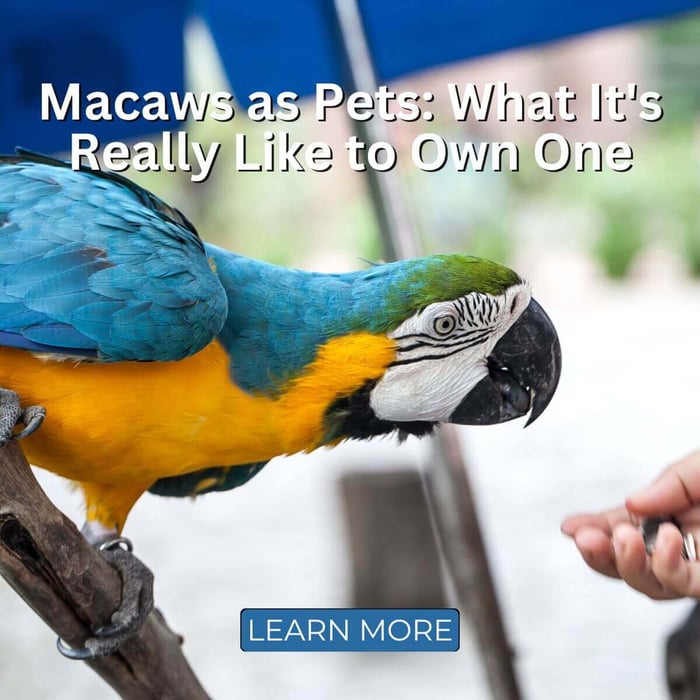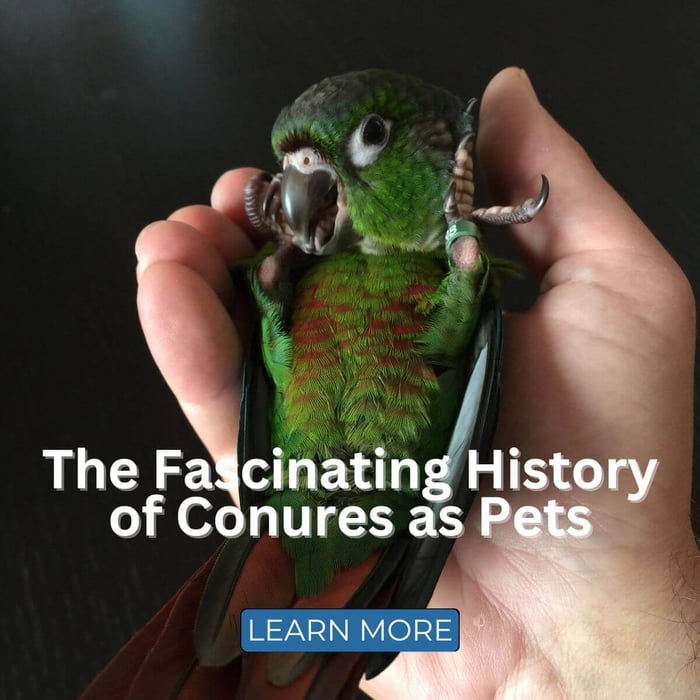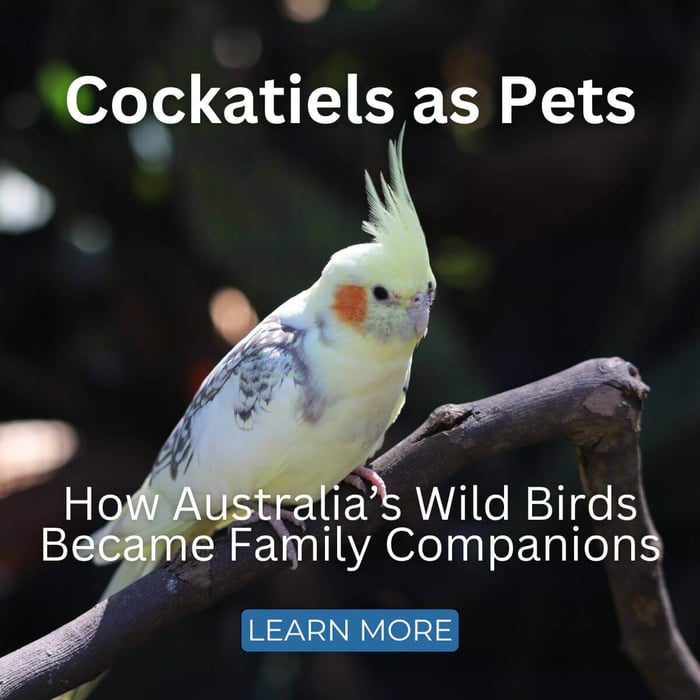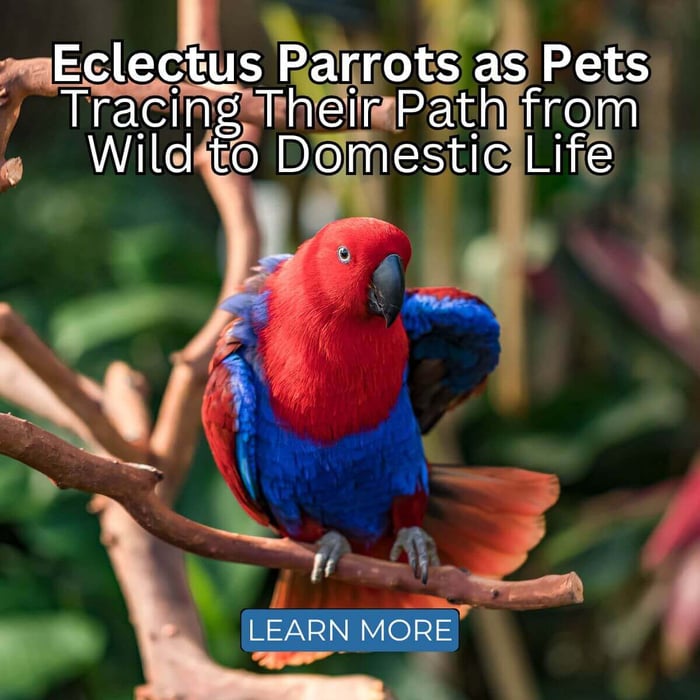Quakers as Pets: Celebrating Their Charm on Quaker Day
At Parrot Essentials, we mark 15 August as Quaker Day, a special occasion to celebrate the unique appeal of Quakers as pets. Whether you're considering welcoming one of these captivating birds into your home or already enjoy their company, understanding what makes Quakers such extraordinary companions is essential. In this article, we'll explore their history, personality traits, species variations, and essential care tips, helping you provide the best life for your feathered friend.
The Fascinating History of Quakers as Pets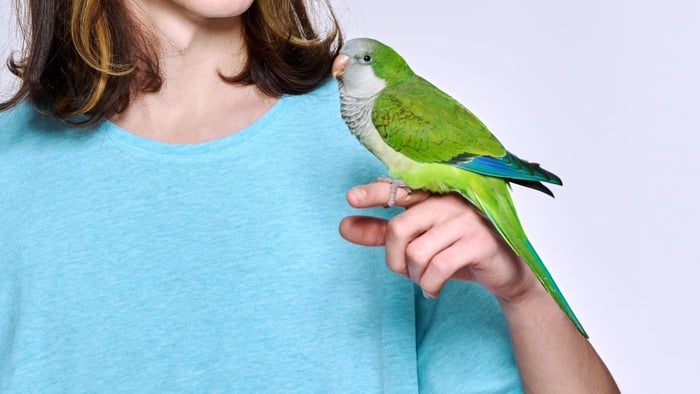
Quaker parrots, also called Monk parakeets (Myiopsitta monachus), hail from the temperate regions of South America, mainly Argentina, Uruguay, and Brazil. Their natural behaviour sets them apart from many other parrot species. Unlike typical parrots that nest in tree hollows, Quakers are famous for building intricate communal nests from twigs and branches, which can house multiple pairs and resemble small bird "apartments." This social nesting habit hints at the strong bonds these birds form, both with each other and, in captivity, with their human caregivers.
Quakers first appeared in the international pet trade in the mid-20th century. Their intelligence, playful nature, and exceptional ability to mimic human speech quickly made them popular pets. Their adaptability also helped them establish feral colonies in parts of North America and Europe, showing remarkable resilience.
What Makes Quakers as Pets So Unique?
If you are drawn to Quakers as pets, it's likely because of their engaging personalities and interactive behaviour. These birds are known for their high intelligence and curiosity, which means they enjoy mental stimulation and social interaction. Quakers tend to be lively and affectionate, often bonding deeply with their owners, showing loyalty uncommon in many parrot species.
Their vocal talents are among their most celebrated traits. Many Quaker parrots develop a vocabulary of words and phrases, often with surprising clarity. Unlike some parrots that may only mimic sounds or whistles, Quakers can engage in "conversations," responding to their owners with contextually appropriate sounds. This makes them rewarding companions for people who appreciate an interactive pet.
However, this vocalisation can sometimes be challenging. Quakers are naturally chatty, and without adequate engagement or stimulation, their calls can become loud or repetitive. Understanding this aspect of their nature helps you prepare and manage their environment for a harmonious home life.
Species Variations and Colour Mutations: Diversity Among Quakers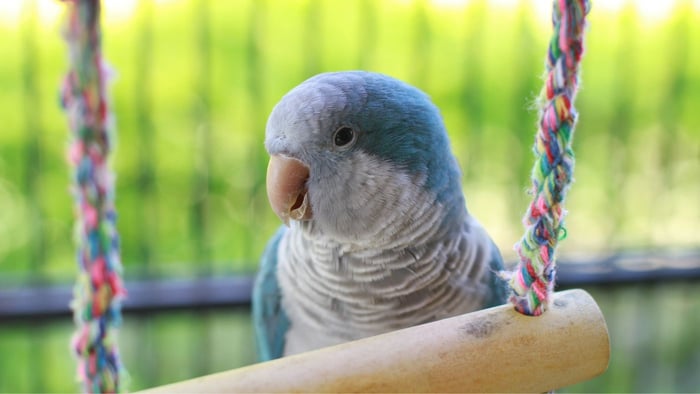
While the classic green Quaker parrot with grey breast and cheeks is most familiar, captive breeding has introduced several colour mutations. These include:
| Classic Green: | Predominantly green with grey face and chest |
| Blue: | Soft blue feathers replacing green |
| White-faced: | White or pale grey face replacing the usual grey |
| Cinnamon: | Lighter, brownish tones replacing grey |
| Yellow: | Bright yellow plumage instead of green |
It's important to remember that while colour differences may influence the bird's appearance, the core personality traits remain consistent across mutations. The temperament of Quakers as pets is shaped more by early socialisation and environment than by colour.
When choosing a Quaker, focus on the bird's behaviour and health rather than solely its colour. Interacting with the bird beforehand and consulting experienced breeders or avian specialists can help you find a Quaker whose personality suits your lifestyle.
Practical Care: Ensuring a Happy Life for Your Quaker
Caring for Quakers as pets requires a commitment to meeting their physical and emotional needs. Their intelligent and social nature means they flourish with attention, enrichment, and proper nutrition.
Nutrition: Providing a balanced diet is fundamental. High-quality pellets tailored to small or medium parrots form an excellent nutritional base, ensuring your Quaker gets essential vitamins and minerals. Brands like Askio Nature Complete Parrot Food Pellets are crafted with avian health experts to support vitality and feather condition.
Complement pellets with fresh vegetables, fruits, and occasional seeds, which mimic their natural foraging behaviours and add variety to their diet. Be mindful to avoid toxic foods such as avocado, chocolate, or caffeine, which can be harmful.
Housing and Environment: Quakers are active and require spacious cages with ample room for climbing and flying short distances. Horizontal bars are ideal for climbing, and perches made of natural wood encourage healthy feet. Including a variety of toys, such as chewable wooden blocks, foraging toys, and swings, keeps them engaged.
Rotating toys regularly is a good way to prevent boredom. Bored Quakers may develop behavioural issues like feather plucking or excessive screaming. Providing out-of-cage time in a safe, bird-proofed room enhances their wellbeing and strengthens your bond.
Social and Mental Stimulation: Quakers thrive on social interaction. Regular training sessions, using positive reinforcement, can teach simple tricks and encourage talking. These activities provide mental challenges that reduce boredom and destructive behaviours.
Quakers are also known for their affectionate nature. Many enjoy gentle head scratches and will often seek physical closeness with their trusted human companions. Consistency and patience in handling help build trust, especially with more cautious individuals.
Health and Veterinary Care: Like all parrots, Quakers benefit from routine check-ups with an avian veterinarian. Early detection of illness improves outcomes, so monitoring your bird's appetite, droppings, feather quality, and behaviour is important.
During moulting, supplementing with moulting tonics or vitamin drops can support healthy feather growth. Ensure clean water and a hygienic cage environment to minimise infection risks.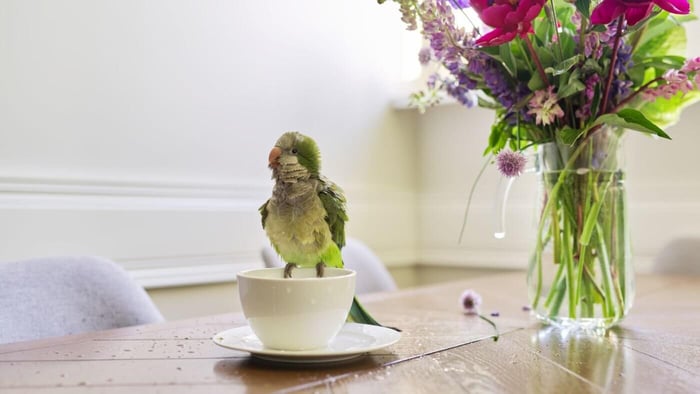
Why Investing in Quality Matters for Quakers as Pets
Choosing premium food, toys, and accessories is an investment in your Quaker's health and happiness. At Parrot Essentials, we recommend products tested by avian experts for durability, safety, and nutritional value. High-quality pellets, such as Askio Nature and Hagen ranges, combined with durable toys made from natural materials, provide your bird with the nourishment and enrichment it needs.
Quality products reduce the risk of illness caused by poor diet or unsafe materials, while also ensuring your Quaker stays mentally stimulated and physically active. Trusting expert advice helps you avoid common pitfalls and supports a long, joyful life for your bird.
Celebrating Quakers as Pets on 15 August and Beyond
As we celebrate Quaker Day on 15 August, take pride in the special bond you share with your Quaker or prepare thoughtfully for welcoming one into your home. Quakers as pets are intelligent, affectionate, and endlessly entertaining birds that reward care and attention with deep companionship.
Whether you are just beginning your journey or looking to enhance your Quaker's well-being, Parrot Essentials offers a wealth of expert advice and carefully selected products to support your bird's needs. From balanced nutrition to engaging toys, our range helps ensure your Quaker lives its best life.
Ready to enrich your Quaker's world? Visit Parrot Essentials to explore our collection of top-quality foods, toys, and care products designed specifically for Quakers as pets. For personalised advice, our experienced team is always here to help.
Discover more about Quakers and other parrot species on our blog, where expert insights and practical tips await to guide you on this rewarding journey.
FAQs
Why are Quaker parrots also called Monk parakeets?
The name comes from their scientific name Myiopsitta monachus and their grey facial markings, which resemble a monk’s hood.
Do Quakers make good pets?
Yes, Quakers are affectionate, clever, and interactive. They can develop strong bonds with their owners and are great companions for people who can give them time, attention, and mental stimulation.
What do Quaker parrots eat?
A balanced diet of high-quality pellets, fresh vegetables, fruits, and occasional seeds works best. Avoid toxic foods like avocado, chocolate, and caffeine.
Are Quaker parrots noisy?
Quakers are naturally chatty and enjoy vocalising. They can learn words and phrases, but may become loud if bored or unstimulated.
How can I keep my Quaker happy and healthy?
Provide a varied diet, plenty of toys, regular social interaction, and routine check-ups with an avian vet. Enrichment and positive training help prevent boredom and unwanted behaviours.

